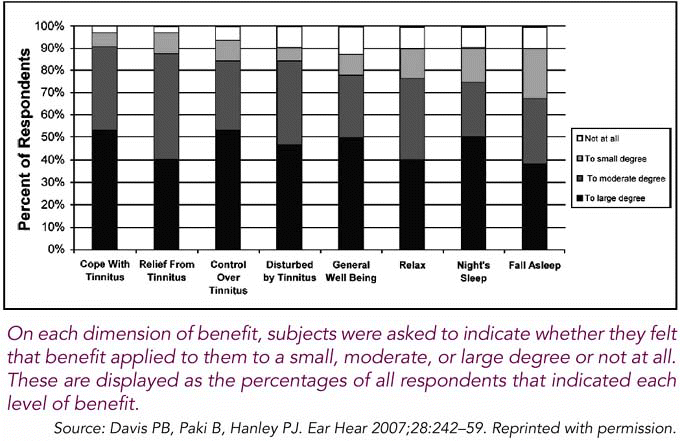Because the treatment works to dissociate the sound the patient hears from the rest of emotional consciousness, he said, although the patient may still hear the sound, it is not depressing, it is not aggravating, it is not causing anxiety.
Explore This Issue
September 2007To Dr. Wazen, the principle of the Neuromonics treatment is attractive because dissociating the tinnitus from the rest of the patient’s brain activity would mean that patients can continue thinking, working, and enjoying their lives while their tinnitus is in their subconscious. That’s a big step in the right direction, he said (Figure 3).
Being cautious about what to tell patients is important to symptom management. What I tell my colleagues and particularly my patients is, ‘Although you may have heard and read that there is no cure for tinnitus, you should not assume every tinnitus is from the same reason.’ Dr. Wazen said. I want to make sure this tinnitus is not due to a tumor, like an acoustic neuroma, or other treatable conditions, he continued. Until a more definitive procedure or treatment is discovered, he added, we can now still tell our patients, ‘We have different treatment protocols you can consider-medications and instruments-which could reduce the impact of tinnitus and have you live with it in a better state of mind.’
Although so-called answers for treating tinnitus have come and gone, this is something that does make sense, said Dr. Wazen. He is hopeful that his investigative team will be able to duplicate the good results of the Australian studies. Then patients become advocates for this technology, he said, and the patient would be the best example to other patients.
Reference
- Davis PB, Paki B, Hanley PJ. Neuromonics Tinnitus Treatment: third clinical trial. Ear Hear 2007;28(2):242-59.
©2007 The Triological Society

Leave a Reply